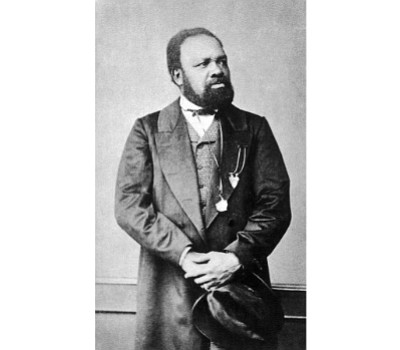hen the United Kingdom celebrated its annual Black History Month in October, it remembered Ira Frederick Aldridge, an 18th century actor who was the first African American to achieve success on the international stage.
This year, as Coventry City of Trust bids for the United Kingdom’s City of Culture recognition, Aldridge’s legacy has once again been thrusted into the spotlight. Today, as America observes Black History Month, Aldr idge counts as an African-American legend whose life and career proved to be astonishing.
Born to free black, the Rev. Daniel and Lurona Aldrige in New York on July 24, 1807 and later traversing Baltimore, Aldridge became to first Black actor to star as William Shakespeare’s Othello in London.
In the book, The Shakespeare Mashup, Ben Arogundade writes about the difficulties and triumphs of Aldridge. He said 18th century London was the epicenter of Britain’s pro-slavery lobby, and the press conducted a hateful campaign of blatant racism against Aldrige.
In one of his two “Othello” performances at the Covent Garden theatre in 1833, most objected to actress Ellen Tree as Desdemona, being “pawed about on the stage by a Black man.”
The local newspaper had been just as scathing eight years prior, when it commented that, “Owing to the shape of his lips it is utterly impossible for him to pronounce English.”
A series of eleven performances at the Surrey Theatre were accompanied by a press report describing Aldridge as an “unseemly n-word.”
Still, Aldridge excelled and went on to become manager at the Coventry Theatre.
“It’s an astonishing story. But the fact that at the age of only 20, Ira – young, gifted and black – was handed Coventry’s Theatre to run, is truly remarkable. He presented plays that attacked slavery and at the same time he raised the standards of a run-down company in crisis,” Professor Tony Howard, a researcher on Aldridge at the University of Warwick in England, said in a blog post that explored the relationship between politics and Shakespeare in modern Britain.
At 15, Aldridge was associating with professional black actors who encouraged him to join the prestigious African Grove Theatre, an all-black theatre troupe founded by William Henry Brown and James Hewlett in 1821. He apprenticed under Hewlett, the first African-American Shakespearean actor, according to Blackfacts.org.
Though Aldridge was gainfully employed as an actor in the 1820s, he felt that the United States was not a hospitable place for theatrical performers.
Many whites resented the claim to cultural equality that they saw in black performances of Shakespeare and other white-authored texts. Realizing this, Aldridge emigrated to Europe in 1824 as the valet for British-American actor James William Wallack.
He eventually moved to Glasgow, Scotland and began studies at the University of Glasgow, where he worked to enhance his voice and dramatic skills in theatre.
Aldridge made his debut in London in 1825 as Othello at the Theatre Royal Covent Garden. Throughout the mid-1820s to 1860, Aldridge slowly forged a remarkable career.
According to Blackfacts.org, he performed in London, Liverpool, Edinburgh, Bath, and Bristol in “King Lear,” ”Othello,” ”Macbeth,” and ”The Merchant of Venice” and also freely adapted classical plays, changing characters, eliminating scenes and installing new ones, even from other plays.
In 1852 he embarked on a series of continental tours that intermittently would last until the end of his life. Some of the honors he received include the Prussian Gold Medal for Arts and Sciences from King Frederick, the Golden Cross of Leopold from the Czar of Russia, and the Maltese Cross from Berne, Switzerland.
Aldridge, who had been married twice, died on Aug. 7, 1867 while on tour in Lodz, Poland. He left behind several children, including a daughter named Luranah who would go on to become a well-known actress and opera singer. Aldridge was 60.
“The story of Ira Aldridge is incredibly moving and is one of which Coventry should be extremely proud,” Laura McMillan, the manager of the Coventry City of Culture Trust, said in a statement.
